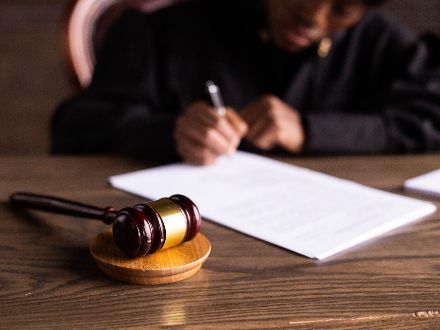1512 Artaius Parkway, Suite 300,
Libertyville, IL 60048
Call for a FREE Phone Consultation
847-549-0000
Video Consultations Also Available
 Spanish
Spanish Cantonese
CantoneseServing Clients Across 7 Illinois Locations
Probate: What it Is and How it Works With and Without a Will

When the time comes for estate planning, a will is not the only way to ensure that your assets and property are passed on according to your wishes. Probate – the legal process of settling an estate after death – can be successful with or without a validly executed will. It’s worth understanding what it involves to know what happens when you pass away and how best to protect yourself and your belongings in all eventualities.
This blog post explores what dealing with probate entails, how it works with or without a legally binding document such as a will, and why its importance cannot be overstated.
What Is Probate?
Probate is the legal procedure that takes place when someone passes away, leaving behind assets such as bank accounts, real estate, and financial investments. Probate is the management and distribution of a deceased person's will or their estate when no will exists.
During the probate process, an executor (if named in the will) or an administrator (appointed when no will exists) is responsible for collecting the deceased's assets, paying off any remaining liabilities on their estate, and ultimately distributing the assets to the designated beneficiaries.
● Probate is the official process for reviewing a deceased person's assets and determining who will inherit them.
● Probate proceedings generally focus on establishing a will's existence, authenticity, and validity.
● Probate can occur whether the deceased left behind a valid will or not.
● Probate is typically necessary in high-value estates even when a will is present.
● Individuals should have an easily authenticated will or use investment vehicles that bypass the probate process to avoid costly probate fees and complications.
How Probate Works
When someone dies and leaves behind property and assets, their estate typically goes through a probate court. The primary purpose of probate is to analyze, manage, and transfer the deceased's estate assets. The probate court ultimately determines how assets will be divided among beneficiaries.
A probate proceeding usually involves examining the deceased person's will or lack thereof. In cases where a valid will exists, the executor named in the will takes on this responsibility. But if there's no will, the court appoints an administrator to handle the probate process.
In either case, probate involves several steps:
1. Identifying and gathering assets: The executor or administrator must locate and secure the estate assets to prevent tampering or loss.
2. Notifying creditors and paying liabilities: This step includes settling debts, funeral expenses, and taxes.
3. Determining beneficiaries and distributing assets: Lastly, the assets that remain are distributed according to the will or state laws if no will exists.
Probate With a Will
A person who has left a will upon their death is known as a testator. When such a person dies, it is up to the executor, often a family member, to begin the probate process. The will can also specifically name an executor to carry out these responsibilities.
Initiating the Probate Process
The executor is responsible for filing the will with the probate court within a specific timeframe, depending on the state's regulations. Initiating the probate process involves a court-supervised proceeding to verify the will's authenticity.
Once approved, the will is acknowledged as the deceased person's true and accepted final testament. The court then officially appoints the executor mentioned in the will, granting the legal authority to act on behalf of the deceased.
Probate Without a Will
testament, they are said to have died intestate. Intestacy can also occur when a presented will is deemed invalid by the probate court. The decedent's assets are distributed according to state laws in this scenario. But what does the process entail, and how can you navigate it? Continue reading to find out.
The Probate Process for Intestate Estates
The main goal of the probate process, in the case of intestacy, is to allocate the deceased person's assets to their closest living relatives, as determined by state law. If the deceased has no assets, then probate may not be necessary.
Appointing an Administrator
The first step is appointing an administrator who will act as an executor, managing the deceased's estate. This individual has the responsibility of receiving all legal claims against the estate and settling any outstanding debts.
Locating Legal Heirs
The administrator's duties include identifying the deceased's legal heirs, such as their surviving spouse, children, and parents. They may need to research or hire a professional genealogist to accomplish this.
Distributing Assets
Once the legal heirs have been determined, the court can begin assessing which assets should be distributed among them and how to allocate them accordingly. This can include everything from property and vehicles to stocks and bonds, and understanding the intricacies of inheritance law is essential for ensuring everything goes as smoothly as possible.
Addressing Unclaimed Assets
No legal heirs can sometimes be found, or unclaimed assets remain following the probate process. The escheatment process kicks in when this happens, transferring the unclaimed assets to the government. It's important to note that states typically have a set timeframe for potential heirs to claim these assets.
Final Word
It is clear that dealing with probate can be complex, and the laws vary from state to state. To ensure that the legal process of disposing of a deceased person's assets is in accordance with their wishes, seeking legal counsel is essential. Working with an attorney with experience in dealing with these proceedings can provide support and guidance during difficult times.
At Newland Attorneys, we understand what families go through when sorting out matters related to probate. We strive to provide thoughtful service every step of the way and take the time needed for each family’s unique situation.
 Stop Foreclosure
Stop Foreclosure




















